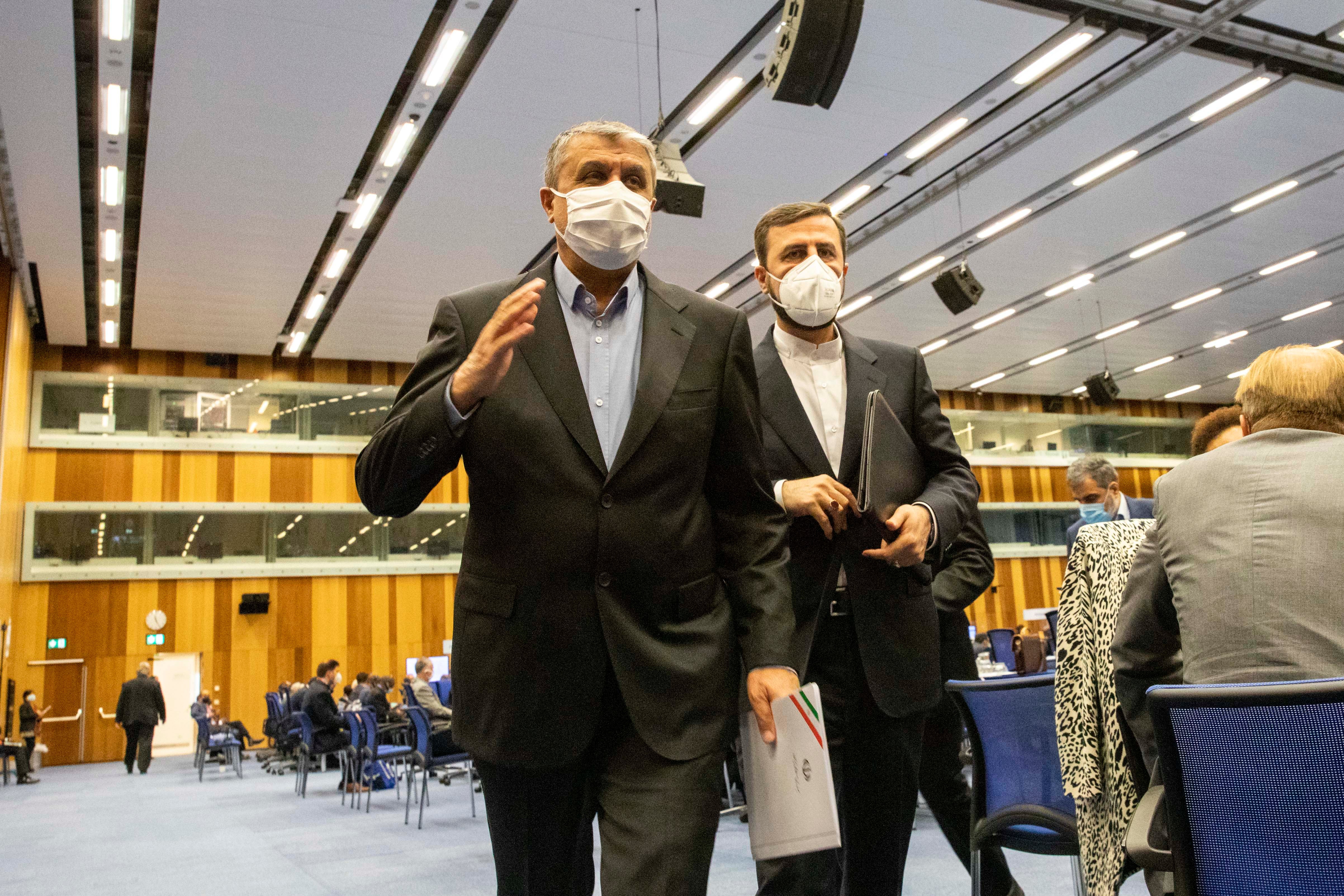Iran nuclear talks pause, will reconvene in Vienna next week
Officials say diplomats negotiating in Vienna to revive Iran’s 2015 nuclear deal with world powers have paused after five days of talks to consult with their governments, and will reconvene next week

Your support helps us to tell the story
From reproductive rights to climate change to Big Tech, The Independent is on the ground when the story is developing. Whether it's investigating the financials of Elon Musk's pro-Trump PAC or producing our latest documentary, 'The A Word', which shines a light on the American women fighting for reproductive rights, we know how important it is to parse out the facts from the messaging.
At such a critical moment in US history, we need reporters on the ground. Your donation allows us to keep sending journalists to speak to both sides of the story.
The Independent is trusted by Americans across the entire political spectrum. And unlike many other quality news outlets, we choose not to lock Americans out of our reporting and analysis with paywalls. We believe quality journalism should be available to everyone, paid for by those who can afford it.
Your support makes all the difference.Diplomats negotiating in Vienna to revive Iran’s 2015 nuclear deal with world powers have paused after five days of talks to consult with their governments and will reconvene next week, officials said Friday.
The European Union official chairing the meeting said there had been some progress, but further “convergence” was necessary.
“We have identified the challenges ahead. Now it is time to consult with capitals,” EU diplomat Enrique Mora told reporters. “We will be resuming here in Vienna next week.”
“We have substantial challenges ahead, time is not unlimited, there is an obvious sense of urgency,” he added. “But above all we need a certain convergence of policy to start negotiations.
The so-called Joint Comprehensive Plan of Action, or JCPOA, has effectively been on life support since the United States pulled out under then-President Donald Trump’s “maximum pressure” campaign against Tehran in 2018.
The remaining signatories to the nuclear deal — Iran Russia, China, France, Germany and Britain — have been meeting at the Palais Coburg, a luxury hotel where the agreement was signed six years ago. The accord strictly limited Iran's enrichment of uranium in exchange for the lifting of economic sanctions.
A U.S. delegation headed by the Biden administration’s special envoy for Iran, Robert Malley, was staying at a nearby hotel and being briefed on the talks by diplomats from the other countries.
Mora said reviving the agreement would require Iran to meet its commitments under the accord, and bringing the United States back into “full compliance," meaning Washington would need to drop the crippling economic sanctions it imposed on Tehran.
Asked what had been achieved this week, Mora said there had been progress “in the sense that we have had a new Iranian delegation, they have engaged in negotiations with other delegations.”
“We are incorporating also new policy sensitivities for the new Iranian delegations," he said. “But again, the point of departure, the common ground is where we finished” at the last round of talks, in June.
The nuclear deal saw Iran limit its enrichment of uranium in exchange for the lifting of economic sanctions. Since the deal’s collapse, Iran now enriches small amounts of uranium up to 60% purity — a short step from weapons-grade levels of 90%. Iran also spins advanced centrifuges barred by the accord, and its uranium stockpile now far exceeds the accord’s limits.
On Wednesday, the International Atomic Energy Agency that monitors the Islamic republic’s nuclear program said Iran has begun steps to enrich uranium at an underground nuclear facility in Fordo — where it was meant to halt all enrichment — up to 20% purity.
Iran maintains its atomic program is peaceful, but U.S. intelligence agencies and international inspectors say Iran had an organized nuclear weapons program up until 2003.
IAEA inspectors are unable to fully monitor Iran’s program because Tehran has limited their access to its sites.
The Iranian delegation, appointed by new Iranian President Ebrahim Raisi, this week called for the U.S. to unfreeze $10 billion in assets as an initial goodwill gesture.